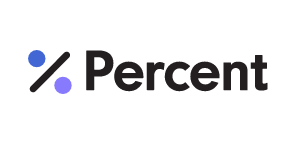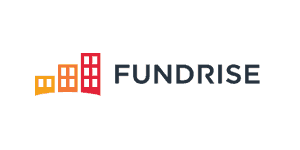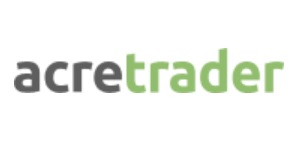Alternative Investment Ideas: 9 Profitable Strategies
 Consider these alternative investment ideas to diversify your assets.
Consider these alternative investment ideas to diversify your assets.
Diversification is said to be the only free lunch in the investment world.
If your stock portfolio is heavily weighted toward one company, you can reduce your risk by purchasing shares of other companies.
The same is true for asset classes.
As your stock accounts grow with regular contributions and gains, your net worth becomes more tightly correlated to market fluctuations.
Depending on your age and risk tolerance, market undulations may cause discomfort and put your retirement at risk.
Bonds and cash are the traditional ways to diversify assets and reduce risk, but those assets’ returns are terrible today.
Alternative investments are another option to diversify and achieve higher returns.
Technology and loosened laws have opened up exciting alternative investment opportunities for ordinary investors.
Table of Contents
Before you Invest in Alternative Investments
The alternative investment ideas in this post may help you diversify away from stocks, lowering your market risk and broadening your asset exposure.
But please keep the following in mind:
- Alternative investments may carry greater risk than traditional investments (stocks and bonds).
- Since the author can’t know each reader’s financial situation, mentions in this article are not recommendations for individuals.
- Please complete your own research and consider your specific objectives before investing.
- Some of the ideas in this article are speculative; don’t invest money unless you understand the assets and can afford to lose some or all of your invested capital.
- Startup businesses, including investment platforms, may not succeed over the long term.
Please also note that some of the investing platforms in this article are affiliate partners. I may receive compensation for referrals from bold links. Where available, I’ve linked to my reviews for more detailed information.
Here are some alternative investment ideas to diversify your asset allocation and reduce stock market risk.
1. Private Credit
Private credit is an alternative asset dealing with privately negotiated loans and debt financing between a corporate borrower and a non-bank lender.
Sometimes businesses need cash for a purpose other than what a bank would traditionally lend for.
For example, a startup could need short-term debt financing to capitalize on a growth opportunity that a bank would consider too risky.
Private credit is nothing new. Hedge funds and institutional investors lend this way as part of a diversified business model.
What is new is that high-quality private credit opportunities are now available to retail investors through a company called Percent.
Percent is a venture-backed startup making it simple for accredited investors to invest in private credit. Investors can earn up to 20% on certain deals, though average returns are closer to 12% as of early 2023.
Investments mature in as little as one month or as long as a few years. Importantly, Percent prioritizes due diligence and transparency throughout the process.
Percent charges fees up to 10% of interest. For example, if a deal paid 15% APY and the fee charged was 10% of interest, your effective APY is 13.5% after fees.
The minimum investment is $500, allowing investors to diversify among several deals.
2. Passive Income Real Estate
Commercial and residential real estate is an alternative investment even though it’s rather common. But most real estate owners are not investors.
I recommend several different passive ways to invest in real estate because it’s a reliable asset with many benefits.
Traditionally-purchased real estate is your best chance to make excellent long-term returns. You’ll own a real asset with tax advantages, collect rent, and participate in appreciation.
But being a landlord is not for everyone.
An easier way for beginners to invest is through real estate crowdfunding where you can own diversified real estate properties through innovative investing platforms.
The Fundrise platform (review) remains my all-time favorite for most investors.
You can get started investing in diversified high-quality real estate with just $10. Your investments are spread into dozens of properties with just a few clicks.
I’ve been investing on the platform since 2017, and I add new money to my account every month.
Other crowdfunding platforms better suited for wealthy investors (invested assets >$1 million) include, EquityMultiple, Crowdstreet, and RealtyMogul.
Here’s my list of the best real estate crowdfunding platforms.
Please note: This is a testimonial in partnership with Fundrise. We earn a commission from partner links on RetireBeforeDad.com. All opinions are my own.
3. Venture Capital Funds
Retail investors now have the opportunity to invest in late-stage pre-IPO startups via venture capital funds.
Venture capital investing is a new asset class for non-accredited investors. Once reserved for wealthy investors and institutions, two fintech have developed platforms to open the investment to the rest of us.
- Fundrise Innovation Fund – $10 minimum investment.
- ARK Venture Fund at SoFi Invest (review) – $500 minimum investment.
These funds are both relatively new. Fundrise is a pure-play venture capital fund with no publicly traded stocks. The ARK Venture Fund also has some publicly traded stocks in the portfolio.
As the investment funds mature, investors can benefit from mergers, acquisitions, long-term private growth, and future IPOs.
4. Fine Art
Masterpiece art has outperformed the S&P 500 and gold since 1997 and has the lowest correlation to equities of any major asset class.
What if you could afford to buy and sell paintings by artists such as Banksy and Basquiat, whose artworks have experienced 10-25% historical appreciation?
For two years, I’ve followed an online investing platform called Masterworks that has emerged to enable ordinary investors to invest in shares of fine works of art.
It works like this. Masterworks identifies fine works of art with the potential for value appreciation, then makes a purchase.
Next, they create a Delaware special-purpose vehicle and file paperwork with the Securities and Exchange Commission (SEC).
Individuals can then purchases shares of the painting, becoming partial owners. After the painting appreciates, it’s sold, and investors collect profits.
Masterworks started with an Andy Warhol painting of Marilyn Monroe for about $2,000,000. Since then, they’ve offered dozens more.
In summer 2020, they launched a secondary platform to provide liquidity and let new investors participate in previous offerings.
It’s a great idea that’s gaining momentum. Accredited and non-accredited investors are welcome, with minimum investments starting at $1,000.
Read my Masterworks review for more details.
5. Farmland and Agriculture
Farmland investment returns have outperformed commercial real estate, gold, bonds, and even the S&P 500 since 1990.
But most of us can’t just buy a farm.
AcreTrader is an online crowdfunding platform that empowers accredited investors to invest in farmland and agriculture projects, making it possible to tap into these out-sized historical returns of 10% or more.
With crowdfunding, you buy fractions of the properties, participating in returns with smaller investment amounts. Properties are split into shares equal to 1/10 of an acre.
Minimum investment amounts range from $5,000 to $30,000, depending on the specific deal.
Farmland is an investment asset as old as time, but now you can access investments through an innovative technology platform.
Investors must be accredited to participate. Accredited means your net worth is greater than $1 million or your annual income exceeds $200,000.
Each deal type requires specific tax reporting, so consider the tax consequences before investing. Most deals pay an annual distribution in December.
Read my AcreTrader review for more information.
Disclosure: This is a sponsored promotion for the AcreTrader platform. RBD may have investments in companies represented on the AcreTrader platform. This informational post is by no means a promotion, solicitation, or recommendation of any specific investment.
6. Websites
The internet age is already a quarter of a century old. Property on the web changes hands frequently these days.
Popular words and easy-to-remember URLs have certainly gained value since the early days of the internet, especially the dot-coms.
Those interested in investing in website URLs can look to any domain name registry or website host company to buy a domain and squat on it for a few years before reselling it.
Make an offer on a high-value domain to better your chances of profit.
First-time disclosure: I recently purchased an internet domain for $700 to reinvest profits from my blog back into the business.
Hint: the website name is related to what I write about here. I don’t have plans for it today, but I expect it to appreciate over time, and it could be my next project one day.
A more ambitious option is to invest in websites for extra income. This involves buying an existing blog or website that is already cash-flow positive.
Two popular websites for buying an online business are Flippa and EmpireFlippers. These marketplaces make it secure to search for and acquire existing, profitable online businesses.
But don’t be mistaken; buying an online business takes a lot of work or requires hiring someone to do it for you.
You may be better off starting your own online business from scratch to learn how it’s done from the ground up.
7. Premium Wines
Serious collectors have long experienced the price appreciation of fine bottles of wine.
Returns are historically higher, too (if you don’t drink them).
However, you need to know what you’re doing and protect your assets.
A new investing platform called VinoVest makes investing in wine easy, enabling regular investors to buy and securely hold exceptional bottles of wine as investments.
The startup helps you identify investable wines, then handles the purchase, storage, and insurance.
Wine investing is liquid, non-correlated to the stock market, and has a proven track record of returns.
You can start investing for a minimum of $1,000. VinoVest welcomes both accredited and non-accredited investors.
8. Small Business Startups
The JOBS Act of 2012 helped to make it easier for startup businesses to raise capital. Since the passing of the law, companies can raise capital through equity crowdfunding. It’s like Kickstarter, but for partial ownership in a company.
Companies looking to raise capital share their business idea to attract investors on equity crowdfunding platforms or through a Reg A+ IPO. The platforms list pre-vetted startups and handle the investment transaction.
Non-accredited (non-millionaires) investors can invest as little as a few hundred dollars in a company. In return, the investor receives equity in the startup.
Three popular platforms in the space are:
Check those out to get a sense of the deals available and how they’re structured.
Each of these platforms enables ordinary investors to invest like a venture capitalist (or shark). That’s cool because you could be an early investor in the next big success. Though realistically, most of these startups will fail, and investors will lose money.
If you commit to opportunities on these platforms, keep your investments small and diversified.
9. Commodity ETFs
Probably the most traditional alternative investment idea on this list is commodities. Commodities have been traded on exchanges for eons, but only in the past two decades have they become easily accessible to ordinary investors via ETFs.
Investors can invest in gold, silver, oil, corn, natural gas, and many other commodities by simply buying placing an ETF order, just like buying a stock.
One of the largest commodity ETFs is the Invesco DB Commodity Index Tracking Fund (DBC), which tracks the performance of 14 different commodities. Fees are a bit high for the fund at 0.85%, but you’ll immediately diversify your portfolio into a different asset class in return.
Alternatively, you can choose which specific commodity in which you want to invest. For precious metal exposure, the SPDR Gold Trust (GLD), the iShares Silver Trust (SLV), and the ETFS Physical Palladium Shares (PALL) are all popular choices.
If you’re planning to buy commodity ETFs, I recommend using a commission-free online broker such as M1 Finance to dollar cost average into ETFs over time. Read my M1 Finance review here.
Read more: 25 Small Investment Ideas to Cultivate Wealth
Conclusion – Alternative Investment Ideas
If any of these alternative investment ideas are interesting to you, please proceed with further due diligence before committing any money. Good luck.
Some alternative investment ideas on this list may become more palatable as the platforms mature. Masterworks, for example, was brand new two years ago when I first wrote about it but has blossomed since then.
Others, like commodity ETFs, farmland, websites, and real estate, have a long history of risk and return data. Consider their suitability for your investment objectives.
If you’re still only comfortable sticking with more traditional investments, these ideas are still interesting to evaluate as fintech platforms become more commonplace.
Keep an eye out for more alternative investment ideas and platforms which are hitting the marketplace every month. The next big success story may be a few clicks away.
Do you have any favorite alternative investment ideas? Please share in the comments below.
Photo via DepositPhotos used under license.

Craig is a former IT professional who left his 19-year career to be a full-time finance writer. A DIY investor since 1995, he started Retire Before Dad in 2013 as a creative outlet to share his investment portfolios. Craig studied Finance at Michigan State University and lives in Northern Virginia with his wife and three children. Read more.
Favorite tools and investment services right now:
Sure Dividend — A reliable stock newsletter for DIY retirement investors. (review)
Fundrise — Simple real estate and venture capital investing for as little as $10. (review)
NewRetirement — Spreadsheets are insufficient. Get serious about planning for retirement. (review)
M1 Finance — A top online broker for long-term investors and dividend reinvestment. (review)






Condo’s can be a good investment like anything else with due diligence and at a a large enough discount to compensate for issues/risk. I purchased in the 80’s when they were a hated asset and in 15 years made 3 time my purchase price back when I sold. It was so cheap at the time even with association costs and mismanagement/fraud and lack of proper reserve funding I still came out fine, also it was a crazy cash cow for rental
Condos can be OK, and sometimes the only option in expensive markets. But they are generally worse than properties without HOAs and restrictions. I bought my condo without the intent to rent it. After years, it became cash flow positive, but retaining the property was risky because of several condo-related risks, including complex age, bad management, and an integrated HVAC system (long story).
I was also close to buying a second condo as a rental, but it fell through due to condo association restrictions on live-in vs. rental ratios. Would have made a great property in hindsight (seeing its price appreciation), but the financing fell through because of the condo restrictions.
That’s great to hear about your successes over the long-term. I did come out on top after 13 years, but it was a bumpy ride. I would not buy another condo as an investment today.
Also really enjoy your blog and have put to work several of opportunities you have written about. They are working quite well for the last couple of years. Thank you for bringing them to my attention. Fundrise, Streetshares, Lending Club and M1
Keep up the great work, I enjoy your work!
Rodney
Glad to hear it! I’m an investor on these sites as well (except SS), and all have paid off, even LC after a pretty bad year. The longer they are out there as successful, the more I enjoy mentioning them to people. M1 just passed 2 billion in AUM, up from 1 billion in Feb 2020. Been with them and recommending since 2017.
-RBD